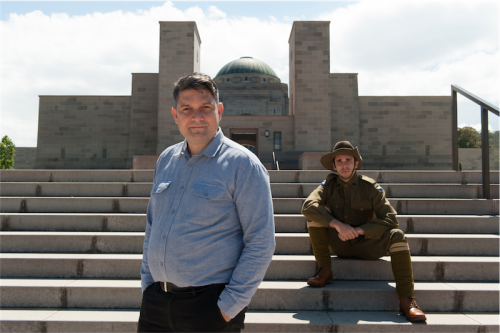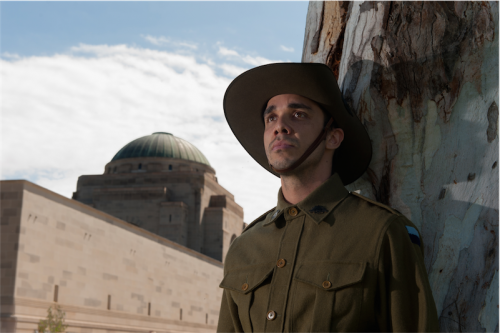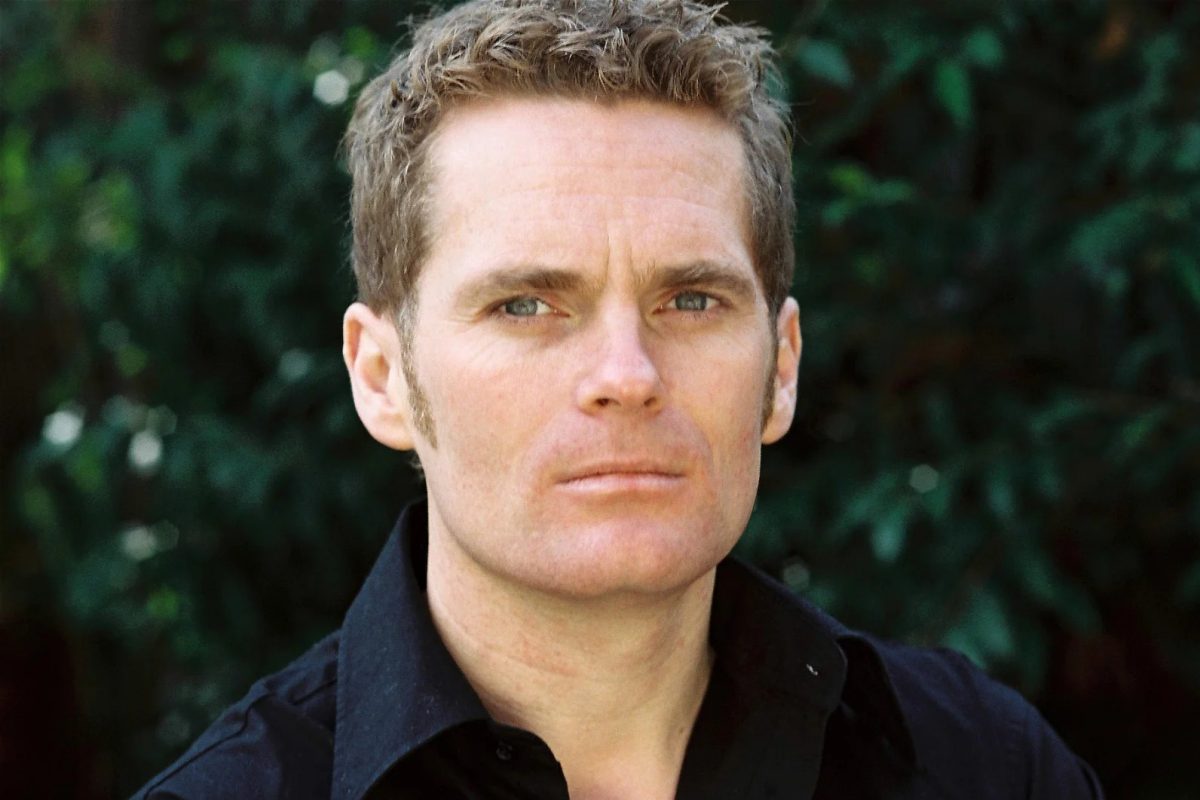
He’s been in town talking up his already famous production “Black Diggers”, coming to The Playhouse later this month and it’s bound to get us all thinking – and crying.
Trained in Drama at Queensland University of Technology, Enoch has been artistic director of Kooemba Jdarra Indigenous Performing Arts and Ilbijerri Aboriginal and Torres Strait Islander Theatre Co-Operative and is now artistic director of the Queensland Theatre Company.
His sister Leeanne Enoch is a cabinet minister in the new Annastacia Palaszczuk government.
Presenting what he calls “a shell-shocked view of history”, he, researcher David Williams and playwright Tom Wright have used interviews with the families of black diggers, veterans and historians combined with songs and movement to let the forgotten black soldiers of World War I “step from the blank pages of history”.

To Enoch, the story showed the need during that war to create a united narrative that depicted Australians as finding identity through suffering on foreign soil. But 100 years after World War I, he says, we are ready to acknowledge that there were Chinese-immigrant diggers, German diggers and, of course, a thousand or so indigenous soldiers – the Black Diggers.
Now, he says optimistically: “Australians are more mature regarding identity and more open to recognising diversity in our narratives.”
So in 2013, when celebrations of World War I loomed, he decided to get in early, to “intervene” in the broader narrative and make it known loud and clear that there were First Peoples in the first world war.
So why on earth did black soldiers fight for king and country after having been treated so badly? After all, most were initially banned from serving in the military and many had to hide their heritage to enlist. Then when the survivors came home from the war, it was back to a life of oppression.
Enoch sees their reasons for enlistment as fourfold – community service, adventure, escaping oppression (since once you joined the AIF you became a number and were paid the same money as others) and perhaps most of all fulfilling the living warrior spirit of a subjugated people.
Enoch says they are stories with allegorical power and big, universal themes. His aim has been to get an emotional, not an intellectual response but at the same time to avoid a victim narrative. Nor does he want to romanticise war.
He’s careful not to give away details of the last scene, but he will say that the play begins with a massacre in far-north Queensland, the lone survivor of which grew up to serve in the Great War.
All the stories in the play have the weight of reality but one of the most touching moments to him is when Uncle Jerry Bostock, who actually served in Vietnam, appears with his medals, making the point that the tradition of black servicemen continues on.
Enoch’s cousin in Darwin is part of an army family, further proof of the continuing tradition. Actor Guy Simon chips in. His great grandfather served in World War I and it wasn’t until the research began on this play that he ever saw a picture of him. He gets to play a digger, a mother, a Trinidadian – as a working actor he’ll play anything, and he’ll be moving on soon to the Sydney Theatre Company, but says the experience performing in “Black Diggers” has been “really emotional.”
And Enoch? People may be packing into the play, he thinks, because of a deep sense of unease and even guilt, but are in the end drawn into “a true celebration”.
“Black Diggers”, The Playhouse, March 25-28, bookings to canberratheatrecentre.com.au or 6275 2700.
Who can be trusted?
In a world of spin and confusion, there’s never been a more important time to support independent journalism in Canberra.
If you trust our work online and want to enforce the power of independent voices, I invite you to make a small contribution.
Every dollar of support is invested back into our journalism to help keep citynews.com.au strong and free.
Thank you,
Ian Meikle, editor




Leave a Reply